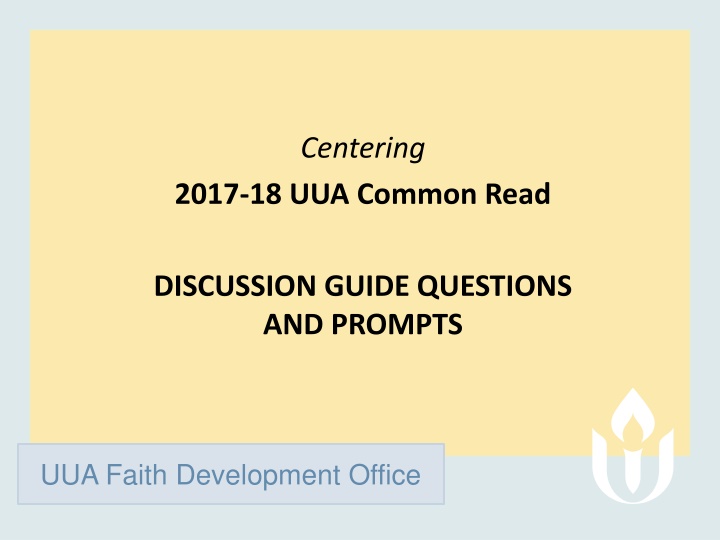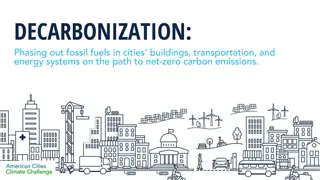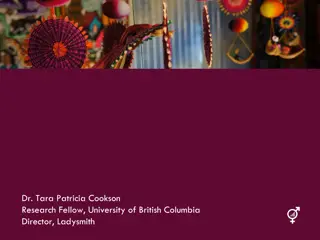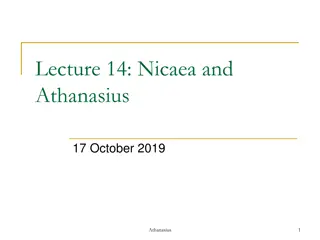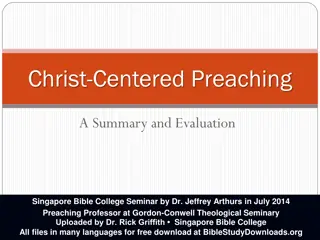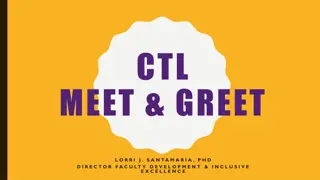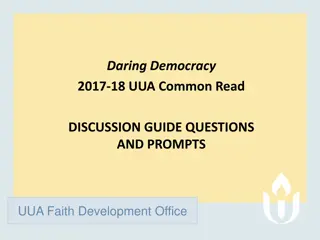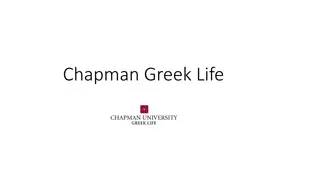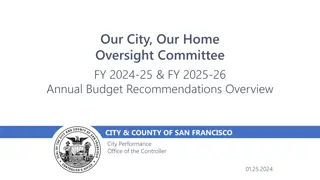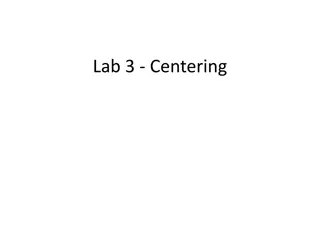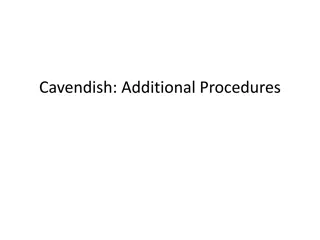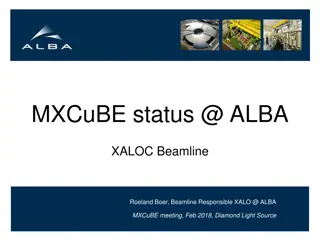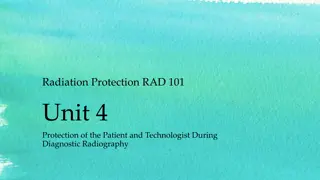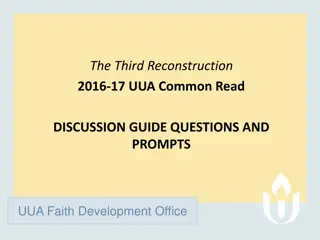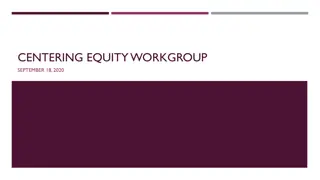Centering 2017-18 UUA Discussion Guide
Dive into thought-provoking questions and prompts from the UUA Faith Development Office centered around narratives on cultural differences, change agents, and longings. Explore ways to navigate complexities in diverse worship practices and promote reflection within congregations.
Download Presentation

Please find below an Image/Link to download the presentation.
The content on the website is provided AS IS for your information and personal use only. It may not be sold, licensed, or shared on other websites without obtaining consent from the author.If you encounter any issues during the download, it is possible that the publisher has removed the file from their server.
You are allowed to download the files provided on this website for personal or commercial use, subject to the condition that they are used lawfully. All files are the property of their respective owners.
The content on the website is provided AS IS for your information and personal use only. It may not be sold, licensed, or shared on other websites without obtaining consent from the author.
E N D
Presentation Transcript
Centering 2017-18 UUA Common Read DISCUSSION GUIDE QUESTIONS AND PROMPTS UUA Faith Development Office
SINGLESESSION VERSION UUA Faith Development Office
Covenant We promise to practice centering the experiences of people of color, and guard against letting the conversation morph into a discussion of the white institution. We promise to refrain from problem-solving discussions. Although those of us who are white may at times feel guilt and shame in response to the stories in the book, we promise to keep the focus of the conversation on the experiences of people of color and not our own emotions. We will find trusted others with whom to process painful feelings outside of this discussion time. We promise to take note of times when experiences of people of color stem from a rejection of the leadership authority of people of color. We promise to approach this discussion with humility. UUA Faith Development Office
Receiving the Narrative: Longings What longings did you hear in Jackson s essay? What are the parts of the culture of the African Methodist Episcopal (AME) Church that offer Jackson a sense of belonging? UUA Faith Development Office
Discussion: Navigating Cultural Differences What is Jackson telling us about the ways in which he feels disconnected from UU culture? When he does decide to speak about the disconnection he feels, what in the reaction of the other person leads to an even deeper experience of othering ? What emotional work is Jackson describing that is not typically asked of a person who finds white UU culture comfortable? UUA Faith Development Office
Discussion: Being Change Agents What are both Jackson and Cuervo telling us about the experience of embodied worship and the difference it makes for them? What do these two narratives tell you about the stress experienced by a religious professional of color who is seen as a change agent, a cultural other, or a disruption to accepted UU worship practice? UUA Faith Development Office
Reflection and Acting Encourage the rest of the congregation to read this Common Read book, with care and attention to the experiences of each essayist. Share what your group has learned about how to approach the narratives, using points from the handout. Explore the many resources on the UU White Supremacy Teach-In website. This project, initiated and overseen by three UU religious educators of color, asks that congregations deliberately set aside time to learn more about white supremacy culture and how to dismantle it. Meet with the minister and/or other appropriate leaders to advocate for your congregation s participation (which need not be on the dates specified on the website). UUA Faith Development Office
THREE-SESSION VERSION SESSION 1: VISIBILITY AND INVISIBILITY UUA Faith Development Office
Covenant We promise to practice centering the experiences of people of color, and guard against letting the conversation morph into a discussion of the white institution. We promise to refrain from problem-solving discussions. Although those of us who are white may at times feel guilt and shame in response to the stories in the book, we promise to keep the focus of the conversation on the experiences of people of color and not our own emotions. We will find trusted others with whom to process painful feelings outside of this discussion time. We promise to take note of times when experiences of people of color stem from a rejection of the leadership authority of people of color. We promise to approach this discussion with humility. UUA Faith Development Office
Receiving the Narrative: Longings What longings did you hear in Jackson s essay? What are the parts of the culture of the African Methodist Episcopal (AME) Church that offer Jackson a sense of belonging? UUA Faith Development Office
Discussion: Navigating Cultural Differences What is Jackson telling us about the ways in which he feels disconnected from UU culture? Why is multicultural ministry important? When Jackson does decide to speak about the disconnection he feels, what in the reaction of the other person leads to an even deeper experience of othering ? UUA Faith Development Office
Discussion: Navigating Cultural Differences What emotional work is Jackson describing that is not typically asked of a person who finds white UU culture comfortable? What is the tension Jackson feels between his African American identity and his role as minister in a mostly white congregation? What makes the line between avoiding conflict and self-care so narrow? UUA Faith Development Office
Discussion: Being Change Agents What are both Jackson and Cuervo telling us about the experience of embodied worship and the difference it makes for them? What do these two narratives tell you about the stress experienced by a religious professional of color who is seen as a change agent, a cultural other, or a disruption to accepted UU worship practice? UUA Faith Development Office
THREE-SESSION VERSION SESSION 2: LEADERSHIP UUA Faith Development Office
Receiving the Narrative: I see you What do these stories tell you about how day-to-day practices in our congregations are a reflection of cultural and social norms? What did you learn from the stories that causes you to stop and reflect? UUA Faith Development Office
Discussion: Representing What does Mishra-Marzetti mean when he says, We are the ones who wind up shouldering the responsibility for our congregation s cross- cultural decision to call us? UUA Faith Development Office
Discussion: Representing If you are a white person, what are some ways you can seek some of the skills and insights needed to engage in a cross-cultural professional or personal relationship? How can you take ownership of educating yourself about issues that affect Asian American, African American, and other communities? How does your congregation or community invest in supporting the leadership of religious professionals and lay people of color? UUA Faith Development Office
Conversation: Commitment What claim are McNatt and Mishra-Marzetti making on Unitarian Universalism? What commitments are they making to the faith? Both writers expressed a commitment to a Unitarian Universalism that is not yet. What does that future Unitarian Universalism look like to them? To you? UUA Faith Development Office
Closing What is on your mind? and heart? What are you learning? UUA Faith Development Office
THREE-SESSION VERSION SESSION 3: MINISTERING TO PEOPLE OF COLOR UUA Faith Development Office
Receiving the Narrative: Lifespan Ministry to People of Color What are Fenimore and Hauser naming that is too often unspoken and unrecognized? What are they lifting up as a central part of their own calling as religious educators of color? UUA Faith Development Office
Discussion: Being at the Table What gifts do religious leaders of color, particularly religious educators, bring to Unitarian Universalism? How can the congregation s governance structures and its practices as an employer lift up or diminish the strength and power of those gifts? UUA Faith Development Office
Discussion: Being at the Table Why is having religious educators of color at the leadership table so crucial, not just for them, but also for families of color? What are you learning that will help you challenge your previous assumptions? UUA Faith Development Office
Discussion: Consideration What is Betancourt saying when she states her hope that no one is made to feel their role in congregational life is to entertain others through their diversity ? What would it look like in our congregations, our communities, and our association if giving consideration to the spiritual and developmental needs of children, youth, adults, and families of color were a priority in the congregation s mission, rather than an afterthought? UUA Faith Development Office
Discussion: Consideration What would need to change in order to prioritize professional development for religious educators? What difference would that make to congregational or community life? UUA Faith Development Office
Reflecting and Acting Encourage the rest of the congregation to read this Common Read book, with care and attention to the experiences of each essayist. Share what your group has learned about how to approach the narratives, using points from the handout. UUA Faith Development Office
Reflecting and Acting Explore the many resources on the UU White Supremacy Teach-In website. This project, initiated and overseen by three UU religious educators of color, asks that congregations deliberately set aside time to learn more about white supremacy culture and how to dismantle it. Meet with the minister and/or other appropriate leaders to advocate for your congregation s participation (which need not be on the dates specified on the website). UUA Faith Development Office
Closing How have we done in upholding our covenant together? How might these practices serve us going forward as individuals and as members of congregations and communities? UUA Faith Development Office
